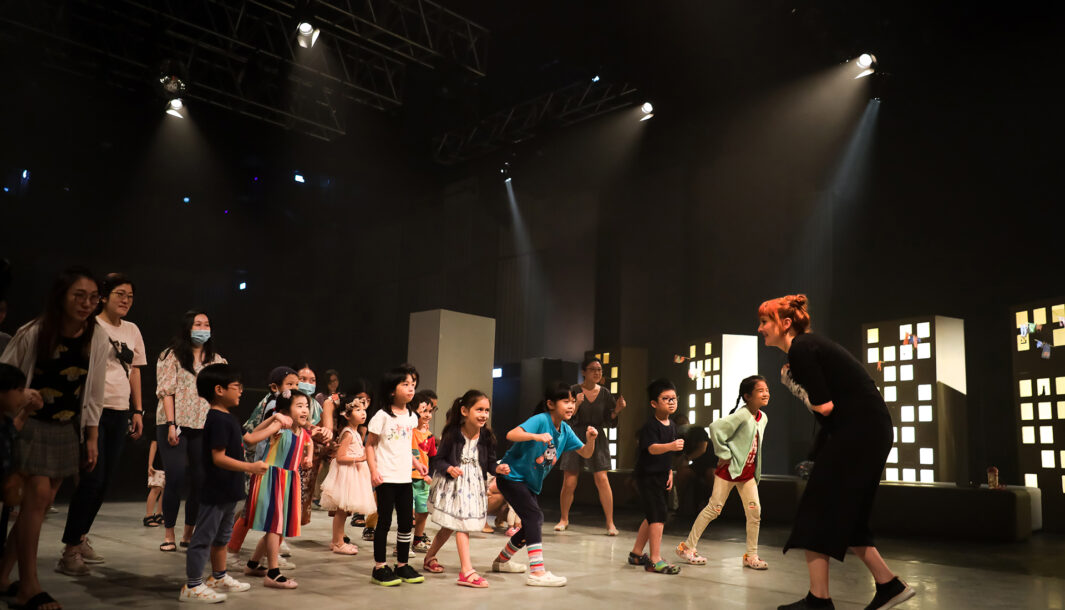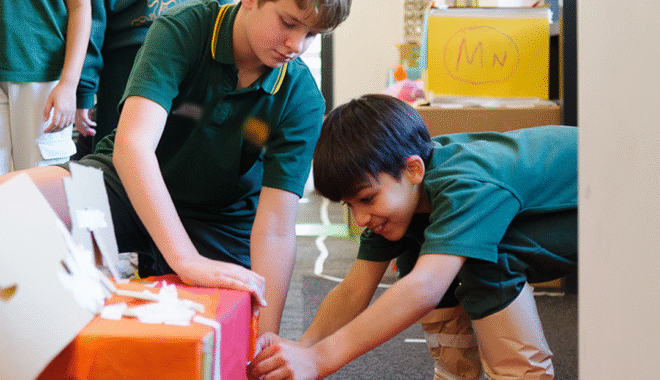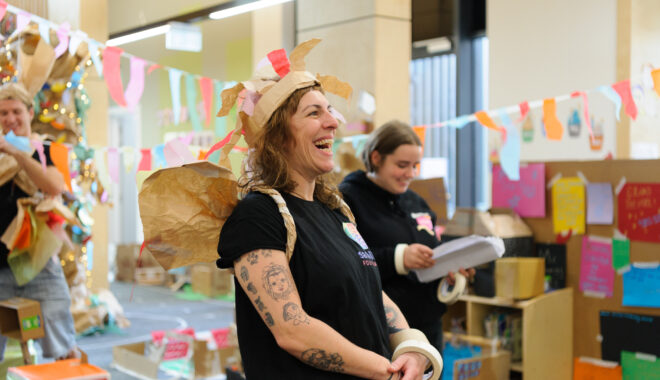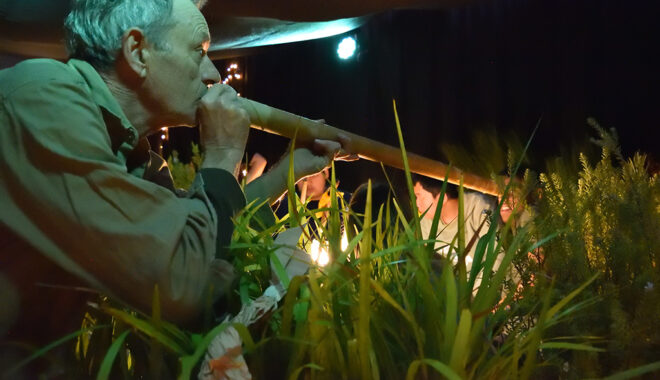23 Apr 2024 Education News
A shared, magical world

The role of early learning centres and schools in the long-distance creative collaboration process of Come Back Home
By Sylvie Meltzer
In late 2020, Esplanade – Theatres on the Bay in Singapore and Polyglot Theatre began a partnership to develop a model of working that could make authentic creative collaboration across distance possible.
Spanning two years during the height of COVID-19, this model enabled the participating artists – three from Esplanade and three from Polyglot, myself included – to work together online, and later in-person, to create a foundation for a new work for children and their families.
With the shared intention to make a piece of theatre not just for young audiences, but with them, the collaborative process of devising the performance of Come Back Home championed children as co-collaborators, co-creators and co-players as we interrogated ideas, shaped explorations and performed our final work.
Here, I explore the discovery process required to build strong relationships between artists in separate locations, and how that manifested through working with young people and children in schools and early learning centres as the development unfolded. This provided creative connection and an invaluable platform for cross-cultural sharing, not only between our two teams, but between two worlds; Singapore and Melbourne.
Discovery phase
In the beginning of our journey, the Esplanade and Polyglot artists invested a significant amount of time online, connecting through Zoom to play, swap stories, define our ways of working together, and build on foundational thematic threads that could form the basis for a theatrical development. The experience was surprisingly intimate. This process proved that there was no one game or activity that revealed everything about anyone, but the cumulative effect of the different investigations, explorations and conversations allowed our dynamic to evolve from strangers to collaborators. This discovery became the essence of the project. How might we offer that dynamic to children and their families and further, to audiences, in the form of a piece of theatre?
By anchoring the initial collaboration between artists in personal discovery, this stage of finding out about each other would be mirrored throughout the creative development with different groups of young participants in schools and early learning centres. It allowed them playful springboards to describe and share about themselves, their worlds and their identity, while offering us creative material for a theatrical exploration.
Collaboration phase
After the discovery phase, the project moved into classrooms in both Singapore and Melbourne. Together, children and artists mapped their worlds, swapped recorded audio stories from both cultures, experimented with collaborative visual arts exercises, played in paper orchestras and used a simple grey triangle to imaginatively explore the concept of transformation. These workshops generated new theatrical content through experience.
The schools and early learning centres we were generously invited into played an integral part in our collaboration by steering inclusive and safe access to diverse groups of children. This was vital in supporting the cross-examination of the role theatre-makers play when creating work for and with young audiences in environments where play and learning is already present.
We collectively went into three schools and three early learning centres, playing with over 650 children. We made observations around the things that brought groups together, sparked curiosity, generated joy, created a sense of adventure and experimented with immersive spaces.
After each collaborative session with a group of children, artists from Esplanade and Polyglot reunited to explore and reflect on the play and learnings. As each group participated in shared creative experiments born from the foundational discovery process, we witnessed remarkable similarities in the way children responded and played with creative prompts, despite being in such different parts of the world.
By collating the stories, artworks, and experiences from the children we were working with, the content of the devised performance began to reflect each culture and participant’s worldviews while culminating into something bigger than each on their own. As we concentrated on the theatrical aspects of the discoveries, such as story and the introduction of characters, the work we were doing in these different institutions highlighted the importance of accessing and honouring the unique relationship between our two places, practices and cultures. We started forming a creative outcome that was a celebration of both our worlds, as well as a shared, magical one.
Performance phase
Inputs from all participants in schools and early learning centres across this experimental theatre process informed the creative decisions in the final phase of rehearsals and performances, including inviting children into the design and production stages.
In March 2023, both teams of artists came together for Esplanade’s March On Festival. Come Back Home was the direct result of defining a cross-cultural and creative discovery model that recognised, and honoured young people as collaborators throughout. The dynamic nature of the show was built as a development phase in its own right. The performance itself provided a structure for play where young people and their families were invited into an imaginative world to immerse themselves in play, contribute to, and be in that world, shaping the experience of those who attended.
Esplanade and Polyglot set out to nurture a relationship built on the shared belief that young audiences are discerning and worthy of outstanding creative experiences. The process of theatre making provided a rich tapestry of experiences for young collaborators to explore their stories and their worlds. It delivered a unique theatrical experience that could act as a blueprint in the future for further cross-cultural theatre co-devised by young people and artists.
Photo: Studio ZNKE, Esplanade – Theatres on the Bay, Singapore
Come Back Home by Polyglot Theatre is an Esplanade Commission, co-produced by Polyglot Theatre (Australia) and Esplanade – Theatres on the Bay (Singapore), in collaboration with artists in both countries. It was assisted by the Australian Government through Creative Australia, its principal arts investment and advisory body.








